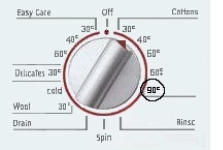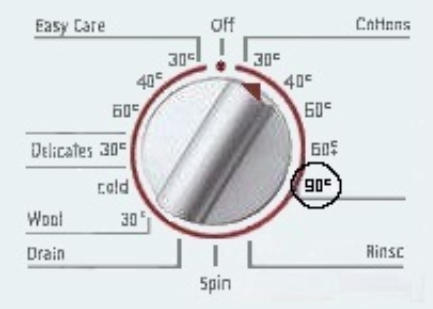
Brand logos and images for informational purposes only - © 2026 Penny Lane Domestic Appliances


Penny Lane Domestic Appliances
How to clean a smelly washing machine
There's an unpleasant smell coming from the inside of my washing machine?
Creating a breeding ground for Bacteria If you always select cool 30°C - 40°C Quick-wash programmes and only use Non-Bio detergent, Liquid detergent, Eco-friendly detergents, Low-quality detergents or any other detergent that doesn’t contain Oxygen bleach. This will cause a build up of dirt and grease creating a breeding ground for Bacteria; very unpleasant smells can form inside your washing machine - in turn the unpleasant smells can be transferred to the laundry itself. A build up of dirt, grease and Bacteria will also cause sections of the door seal to turn discoloured and black. Regular 90°C Maintenance washes Two to three times a year simply wash cotton Tea towels on the Hottest 90°C Wash Programme with the ' Intensive wash and the Extra rinse ' options (if your machine has those functions) with a normal amount of detergent and two scoops of Oxygen bleach powder additive. These maintenance washes will keep the machine and the outlet hose clean and free from the build-up of dirt, grease and bacteria. Also, with regular maintenance washes you will considerably prolong the life of your machine. Regularly clean around the door glass and the door seal with White vinegar. Pull out and clean the Soap drawer with White vinegar, especially the Fabric softener dispenser. Clean the Pump filter. In soft-water areas you only need to use detergent and oxygen bleach Here in Liverpool we have soft-water; all we need to use is detergent and two scoops of Oxygen bleach powder additive. The specialised washing machine cleaning products are descaler’s, their only required in hard-water areas where harmful Lime-scale deposits can damage washing machines. Also, see our guide to: The correct way to use liquid detergent Never completely close the door between washes The good advice we always tell our customers, never completely close the washing machine door between washes. When the machine is not in use leaving the door slightly open will enable air to flow around the door seal and inner drum. This should dry the machine out and help to prevent unpleasant smells forming inside your washing machine.If you don't perform regular maintenance washes
you will shorten the life of your washing machine
Apart from your machine smelling very unpleasant and the door seal turning discoloured and black; the bigger problem is by not performing regular maintenance washes the rubber seal that protects the drum bearings and the aluminium drum spider that supports the inner drum, will gradually become corroded by a accumulative build up of dirt and grease. As the dirt and grease decays it turns to acid and eats its way through the bearing seal letting water slowly seep into the bearings, the corrosion will also severely weaken the aluminium in the supporting arms of the drum spider. Too often this will causes the drum bearings to completely fail, or one of the drum spider arms, or all three to break. Once the drum bearings or drum spider fail on a washing machines nowadays; it’s simply time to replace the whole washing machine with a new machine.
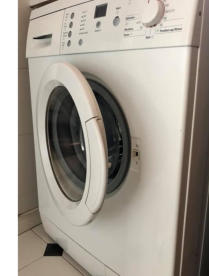
Never completely close the door
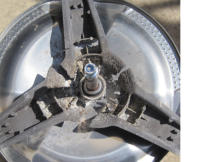
Drum spider

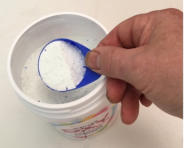
Oxygen bleach powder additive






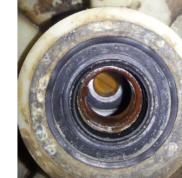
Bearing seal





Brand logos and images for informational purposes only
© 2026 Penny Lane Domestic Appliances
How to clean a
smelly washing
machine
There's a unpleasant smell
coming from the inside of
my washing machine?
Creating a breeding ground for Bacteria If you always select cool 30°C - 40°C quick-wash programmes and only use Non-Bio detergent, Liquid detergent, Eco-friendly detergents, Low-quality detergents or any other detergent that doesn’t contain Oxygen bleach. This will cause a build up of dirt and grease creating a breeding ground for Bacteria; very unpleasant smells can form in your washing machine - in turn the unpleasant smells can be transferred to the laundry itself. A build up of dirt, grease and Bacteria will also cause sections of the door seal to turn discoloured and black. Regular 90°C Maintenance washes Two to three times a year simply wash cotton Tea towels on the Hottest 90°C Wash Programme with the ' Intensive wash and the Extra rinse ' options (if your machine has those functions) with a normal amount detergent and two scoops of Oxygen bleach powder additive. These maintenance washes will keep the machine and the outlet hose clean and free from the build-up of dirt, grease and bacteria. Also, with regular maintenance washes you will considerably prolong the life of your machine. Regularly clean around the door seal with White vinegar. Pull out and clean the Soap drawer with White vinegar, especially the Fabric softener dispenser. Clean the Pump filter. In soft-water areas you only need to use detergent and oxygen bleach Here in Liverpool we have soft-water; all we need to use is detergent and two scoops of Oxygen bleach powder additive. The specialised washing machine cleaning products are descaler’s, their only required in hard- water areas where harmful Lime-scale deposits can damage washing machines. Never completely close the door between washes The good advice we always tell our customers, never completely close the washing machine door between washes. When the machine is not in use leaving the door slightly open will enable air to flow around the door seal and inner drum. This should dry the machine out and help to prevent unpleasant smells forming inside your machine.If you don't
perform regular
maintenance washes
you will shorten the
life of your machine
Apart from your machine smelling unpleasant and the door seal turning discoloured and black; the bigger problem is by not performing regular maintenance washes the rubber seal that protects the drum bearings and the aluminium drum spider that supports the inner drum, will gradually become corroded by a accumulative build up of dirt and grease. As the dirt and grease decays it turns to acid and eats its way through the bearing seal letting water slowly seep into the Bearings, the corrosion will also severely weaken the aluminium in the supporting arms of the drum spider. Too often this will causes the drum bearings to completely fail, or one of the drum spider arms, or all three to break. Once the drum bearings or drum spider fail on a washing machines nowadays; it’s simply time to replace the whole washing machine with a new machine.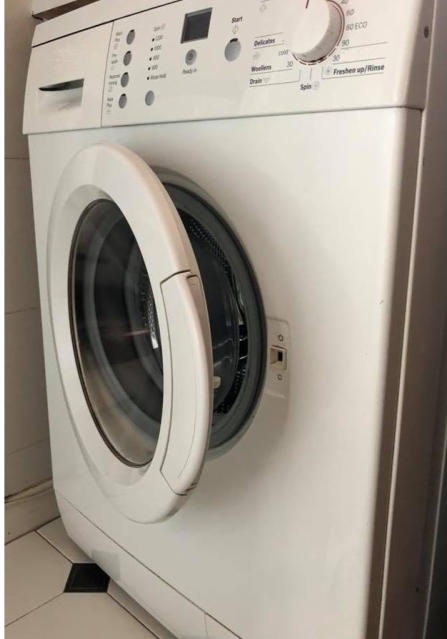
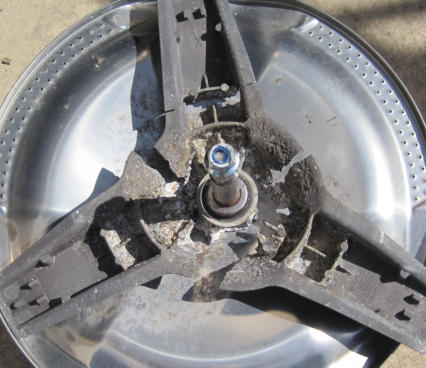
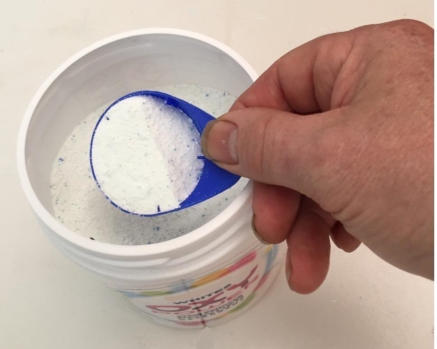
Oxygen bleach powder additive

Penny Lane
Domestic Appliances




Never completely close the door
Drum spider


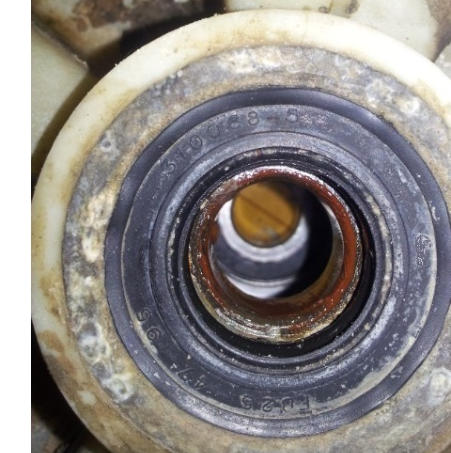
Bearing seal











